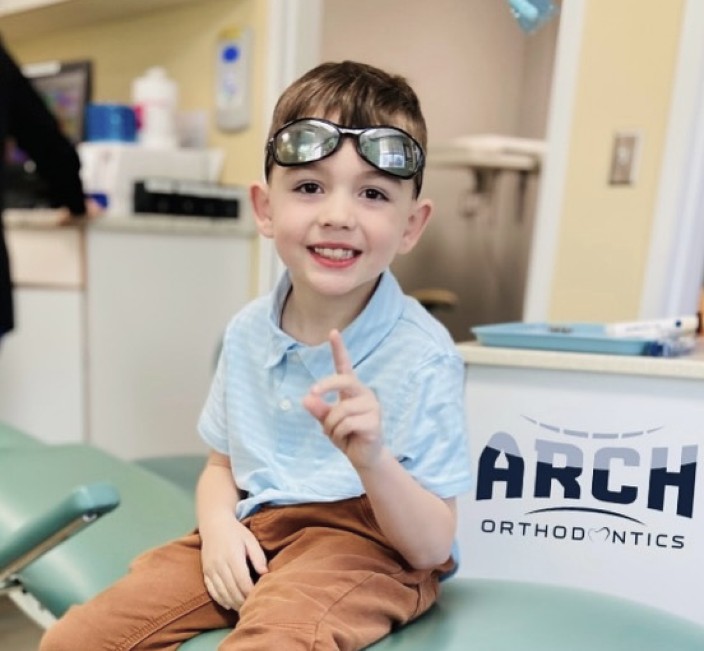About 4 million people across the US already wear braces. Of these, about 25% are adults. Even if your teeth already appear straight, you might want to consider them yourself!
What are the top reasons to get braces? Read on to find out.
After reviewing this guide, you can determine if it’s time to visit an orthodontist for treatment. Discover the cosmetic, lifestyle, and medical reasons to get braces today!
1. Improved Oral Health
As you explore these reasons to get braces, go ahead and stand in front of a mirror. Do you notice any gaps between your teeth? Those gaps could compromise your oral health.
For example, small food particles can get trapped within those gaps. If your teeth are crooked, you might struggle to brush and floss effectively. Leaving food particles and bacteria between your teeth will impact your oral health.
Those food particles can mingle with the bacteria in your mouth to form plaque. You could struggle to clean plaque away if your teeth appear crooked.
Over time, plaque can harden into tartar. Only a dental professional can clean tartar away from your teeth.
When left untreated, your teeth and gums can become vulnerable to the plaque and tartar in your mouth. Your risk of developing cavities and oral disease will increase. Your entire body will become more vulnerable to bacteria as a result.
The bacteria from the cavities you develop might harm the bones that keep your teeth rooted as well.
Your risk of losing adult teeth could increase. Meanwhile, the gaps in your smile might begin to increase. You could become more self-conscious about the appearance of your smile as a result.
If you lose a tooth, the surrounding teeth might begin to lean toward the gap. These teeth might begin to look crooked. Your ability to thoroughly brush and floss might become more difficult.
If you lose a tooth, you might also require more extensive treatment, such as a dental implant. Dental implants can replace the teeth you’re missing with a crown.
Before your oral health begins to deteriorate, consider these medical reasons to get braces. You can improve your smile to avoid developing oral health issues in the future.
2. Easier Chewing
Your orthodontist might recommend you get braces for a(n):
- Overbite
- Crossbite
- Underbite
Bite issues might impact your ability to thoroughly chew the foods you eat. You might notice it’s more difficult to chew certain foods like steak and apples as well. To avoid discomfort, you might remove these foods from your diet altogether.
Removing certain foods from your diet might impact your ability to provide your body with the vitamins and nutrients it needs. Instead of removing these foods from your routine, talk to your orthodontist. They’ll help you determine if you’re an ideal candidate for treatment.
Otherwise, failing to chew food thoroughly will cause your stomach to work twice as hard to digest these foods.
You might experience digestive issues like bloating, stomach pain, or gas as a result.
Meanwhile, your jaw muscles will feel stiff if you find it’s difficult to chew due to alignment issues.
Don’t let an underbite or overbite impact your quality of life. Instead, consider getting braces.
Improving your bite will make it easier for you to chew your favorite foods. As a result, you can put an end to any digestive problems you’re experiencing.
3. Dodge Gingivitis
Plaque and bacteria might cause your gums to recede from your gumline. You might notice your gums have started bleeding or look swollen as well. If these problems sound familiar, you might have gum disease.
Gum disease, or gingivitis, affects nearly half of American adults ages 30 and up. Without treatment, gingivitis (the early stages of gum disease) can progress to periodontal disease.
Remember, when there are gaps in your teeth or they appear crooked, it can seem more difficult to brush and floss. Food particles can cause bacteria to spread. You might develop gingivitis, which can cause pain and inflammation.
When your gums begin to recede, it can leave your teeth vulnerable to germs and bacteria.
You might also experience bad breath, a change in your teeth alignment, and pus between your gums. Your teeth might loosen, increasing your risk of losing teeth.
Before you develop gingivitis, consider perfecting your smile with braces.
Braces can close the gaps in your smile, minimizing your risk of gingivitis in the future.
4. Minimize Headaches
Have you started grinding your teeth at night? You might develop bruxism if your teeth aren’t in proper alignment. As a result, your protective tooth enamel could experience erosion.
Erosion could leave your teeth more vulnerable to bacteria and decay.
You might start waking up with headaches if you grind your teeth at night. In fact, you could develop sleep apnea, too. Not getting enough sleep at night might impact your quality of life during the day.
Consider getting braces for sleep apnea before your mental and physical health deteriorates due to a lack of sleep.
5. Avoid Injuries
If a tooth juts out at an odd angle, it could get knocked out after a car or sporting accident. Talk to your local orthodontist. They might recommend metal braces to ensure the tooth is properly placed.
You could reduce your risk of a serious oral injury as a result.
6. Prevent Jawbone Erosion
Your teeth won’t have the support they need if your gums begin receding. Your jawbone and gums might erode over time as well. You might experience tooth loss as a result.
In addition to the cosmetic reasons to get braces, you can also get them to avoid jawbone erosion.
7. Save Money
Tooth decay and gingivitis will require extensive treatments. Meanwhile, periodontitis can increase your risk of diabetes, lung disease, stroke, and heart disease.
Prioritizing the medical reasons to get braces could help you avoid costly treatments in the future.
Stunning Smiles: 7 Reasons to Get Braces ASAP
Don’t let an overbite, bruxism, or plaque impact your health and quality of life. Instead, consider these seven reasons to get braces. Seeking treatment right away could help you avoid complications in the future.
Want to learn more about orthodontic treatment? We’re happy to help.
Contact us today to visit your local orthodontist.


